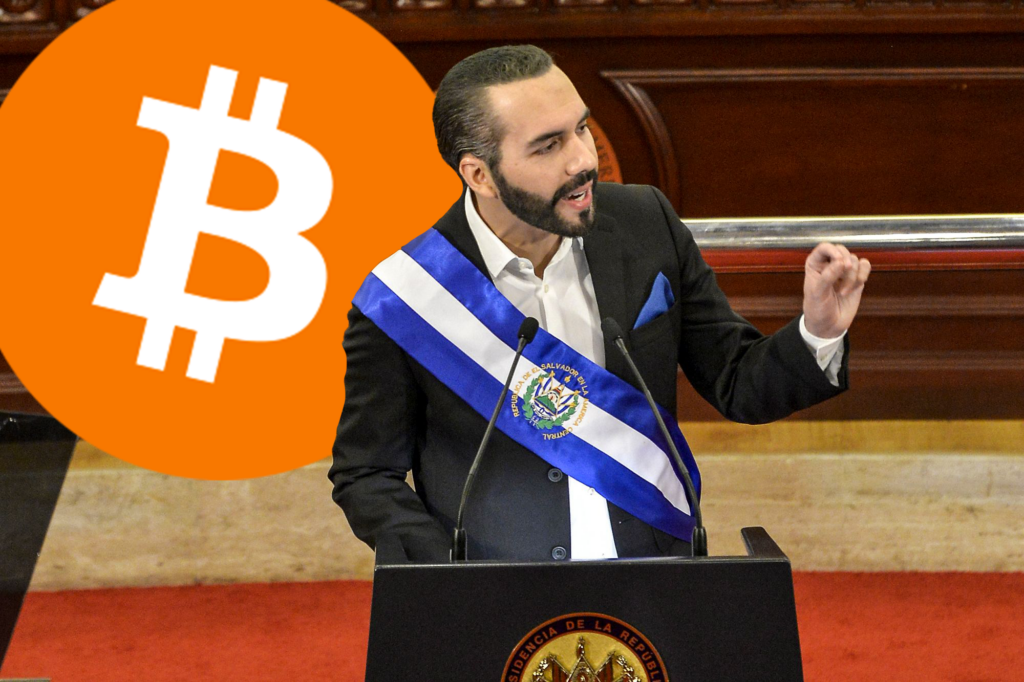18 November 2025
Bitcoin Magazine

El Salvador Drops Another $100M on Bitcoin as Market Crashes
Some sell Bitcoin on the dips while others aggressively buy more — and so far, it’s the accumulators who’ve come out ahead, though only time will decide which strategy ultimately wins.
El Salvador is pressing ahead with its aggressive Bitcoin accumulation strategy despite one of the steepest market drawdowns of the year. The Central American nation purchased 1,091 BTC on Tuesday — nearly $100 million worth — according to data from the country’s Bitcoin Office.
President Nayib Bukele later posted a screenshot on X confirming that the government accumulated 1,098.19 BTC over the past seven days, pushing total holdings to 7,474.37 BTC valued at roughly $688 million.
The country continues to buy 1 BTC per day, a policy Bukele introduced in November 2022 and has maintained through every market cycle. The strategy has become a signature part of El Salvador’s approach to digital asset reserves, even as the IMF and other global institutions discourage further public-sector accumulation.
Government disclosures show that the one-BTC-per-day program has steadily expanded reserves, and officials insist there are no plans to halt the buys.
Stacy Herbert, director of El Salvador’s Bitcoin Office, called Bitcoin “freedom, transparency, and individual empowerment,” saying the policy reflects a desire to distribute economic power rather than centralize it. Financial analysts note that El Salvador is now one of the few sovereign actors openly buying into market weakness.
The latest purchase also arrives as the Bukele administration deepens coordination with U.S. officials on digital-asset oversight. The president met with White House crypto adviser Bo Hines in June, part of ongoing discussions around regulations affecting cross-border Bitcoin activity.
El Salvador’s conviction comes during a brutal week for the broader market. Bitcoin plunged below $90,000 in Asian trading on Tuesday, dropping as much as 4.9% over 24 hours. At the time of writing, BTC trades near $91,768 currently, according to Bitcoin Magazine data.
Short-term holders—wallets that have held coins for under 90 days—panic-sold roughly 148,000 BTC at a loss, the largest capitulation since April. Analysts say this selling mirrors behavior seen at previous market tops and may not be finished.
The sell-off accelerated after $19 billion in leveraged long positions were wiped out, triggering cascading liquidations. Bitcoin is now down more than 26% from its October all-time high near $126,000.
If Bitcoin stabilizes in the $80,000–$90,000 zone, many believe El Salvador’s nine-figure buy could ultimately prove one of the sharpest macro calls of the year.
El Salvador’s Bitcoin background
El Salvador’s Bitcoin experiment has entered its fourth year, marking one of the most closely watched financial policy shifts in the world.
The country made history in September 2021 when it became the first nation to adopt Bitcoin as legal tender, a move championed by President Bukele as a strategy to boost financial inclusion, attract investment, and modernize the economy.
The rollout, supported by a state-run wallet called Chivo and various incentives, drew global attention as well as criticism from the IMF and traditional financial institutions concerned about volatility and fiscal risk.
As mentioned earlier, despite early technical challenges and a sharp market downturn in 2022, Bukele’s administration doubled down on its Bitcoin strategy, implementing daily BTC purchases, launching a “Bitcoin Office,” and pushing forward plans for Bitcoin-backed bonds and the proposed “Bitcoin City.”

The government also committed to transparent reporting of its treasury address, allowing the public to track the nation’s on-chain holdings.
While the global debate over the policy remains unresolved, El Salvador’s Bitcoin-first approach has undeniably reshaped the nation’s economic narrative.
Bukele views El Salvador’s adoption of Bitcoin as a strategic move to boost the country’s global image, attract tourism, and spur investment, despite low domestic usage. He emphasizes that the goal was less about immediate adoption and more about repositioning El Salvador as a forward-looking, digitally innovative nation.
This post El Salvador Drops Another $100M on Bitcoin as Market Crashes first appeared on Bitcoin Magazine and is written by Micah Zimmerman.
 El Salvador buys $101 million worth of
El Salvador buys $101 million worth of 